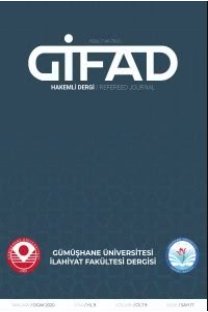Görsel-İşitsel Yayıncılığın Denetlenmesi Bağlamında ABD, Japonya ve Rusya’daki Son Düzenlemeler
Radyo ve televizyon yayıncılığının sınırları aşan bir nitelik kazanması, bu alanda bazı hukukî düzenlemelerin yapılması gereğini ortaya çıkarmıştır. Nitekim, kamu hizmeti niteliği taşıyan radyo ve televizyon yayınlarında “kamu yararı”nın gözetilmesi gerekmektedir. Bu gereklilik, günümüzde görsel ve işitsel yayın hizmetlerinin yayın sonrası olmak kaydı ile denetimini zorunlu hâle getirmektedir. Öte yandan, günümüzde özellikle radyo ve televizyon yayın hizmetlerine uygulanan sıkı denetimin, düşüncelerin serbestçe iletilebilmesi bakımından düşünce ve ifade hürriyeti ile çeliştiği de görülmektedir. Ancak, bir taraftan da bu hürriyetin sorumsuzca kullanılması hâlinde, kamu düzeni ve genel ahlâkın bozulacağı, özellikle de ayırt etme yeteneği henüz gelişmemiş çocukların ve/veya gençlerin gelişimine zarar verileceği ihtimali, bu hürriyete de bir sınır getirilmesi gerekliliğini gündeme getirmektedir. Zira, yayıncının yalnızca izlenme oranı kaygısıyla yaptığı şiddet ve müstehcen içerikli yayınlardan görece savunmasız izleyicilerin nasıl etkileneceği önemli bir soru işaretidir. Görsel-işitsel yayın hizmetlerinin denetlenmesi hususunda ABD, Japonya ve Rusya’daki hukuki mevzuatı ve mevcut durumu irdelemeyi amaçlayan bu çalışmada, öncelikle denetim kavramını tanımlanmakta, görsel-işitsel yayın hizmetlerinde denetim olgusunun gerekliliği ortaya konmaktadır. Çalışma kapsamında Avrupa kıtası dışında yer alan görece üç büyük ülke (ABD, Japonya ve Rusya) üzerinde ayrı ayrı durulmaktadır. Söz konusu ülkeler, AB ülkelerine nazaran görsel-işitsel yayın politikalarını inceleyen araştırmalara daha az konu olmaları nedeniyle tercih edilmişlerdir. Betimsel nitelikteki bu çalışma, konu ile ilgili yapılacak araştırmalar için bir temel oluşturma niteliği taşımaktadır.
Anahtar Kelimeler:
Radyo ve Televizyon, Görsel İşitsel Yayın Hizmeti, Denetim, Denetleyici Otorite, ABD, Japonya, Rusya
The last regulations in the USA, Japan and Russia in the context of the audio-visual broadcasting supervision
The fact that radio and television broadcasters have acquired a qualification that transcends borders has led to the necessity of making some legal arrangements. As a matter of fact, “public benefit” should be observed in radio and television broadcasts which are public service quality. This necessity brings the control of audiovisual broadcasting services on condition that they are post-broadcast. On the other hand, it is also seen that strict control applied to radio and television broadcasting services today contradicts freedom of thought and expression in terms of freely transmitting thoughts. However, the possibility that the freedom of public order and general morality will deteriorate, especially if the ability to discriminate is harmful to the development of children and / or young people, should be imposed on this liberty in the event that this freedom is used irresponsibly. It is an important question how the vulnerable viewers will be affected by the violence and obscene broadcasts of the broadcaster only with respect to the rating ratio. In this study, it is aimed to investigate the legislation and the current situation in USA, Japan and Russia regarding supervising of audiovisual broadcasting services, firstly the concept of supervising is defined and the necessity of supervising in audiovisual broadcasting services is revealed. The study focuses on three relatively large countries (the US, Japan and Russia), which are located outside the European continent. These countries have been preferred because of the fact that they are less subject to research that examines audiovisual broadcasting policies than EU countries. This descriptive study has the qualification to form a basis for the research to be carried out on the subject.
Keywords:
Audiovisual Broadcasting Service, Radio and Television, Supervision, Supervisory Authority, USA, Japan, Russia.,
___
- AVŞAR, Bozkurt Zakir ve DEMİR Vedat (2005). Düzenleme ve Uygulamalarla Medyada Denetim, Ankara: Piramit Yayıncılık.
- BELMAS, Genelle ve OVERBECK Wayne (2012). Major Principles of Media Law, Boston: Wadsworth Cengage Learning.
- BROADCASTING BOARD OF GOVERNORS, “Contemporary Media Use in Russia”, http://www.bbg.gov/wp-content/media/2014/02/Russia-research-brief.pdf, Erişim Tarihi: 03.01.2017.
- BÜYÜKBAŞ, Hakkı (2013). “Japon Siyasal Sisteminin Gelişimi Üzerine Bir İnceleme (1868-2003)”, SDÜ Fen Edebiyat Fakültesi Sosyal Bilimler Dergisi, 28, s.68.
- CASTELLS, Manuel (2016). İletişim Gücü, (Çev. Ebru Kılıç), İstanbul: Bilgi Üniversitesi Yayınları.
- COASE, Ronald (2013). The Federal Communications Commission”, The Journal of Law and Economics, 56(4), s.891.
- COŞKUN, Sena (2016). Radyo ve Televizyon Yayın Hizmetlerinde Denetim, Gazi Üniversitesi Sosyal Bilimler Enstitüsü Yayımlanmamış Doktora Tezi, Ankara.
- ISSN: 2146-3301
- Yayın Aralığı: Yılda 2 Sayı
- Başlangıç: 2011
- Yayıncı: Mustafa Cankut
Sayıdaki Diğer Makaleler
Örgütlerde sosyal medya kullanımı: sosyal medya algıları, amaçları ve kullanım alışkanlıkları
ÇAĞRI MERKEZİ MÜŞTERİ TEMSİLCİSİNİN İMAJININ MÜŞTERİ MEMNUNİYETİ ÜZERİNDEKİ ROLÜ
Sosyal medyada kurum kimliği yönetimi: Türkiye’nin en büyük 500 şirketi üzerine bir araştırma
Çağrı Merkezi Müşteri Temsilcisinin İmajının Müşteri Memnuniyeti Üzerindeki Rolü
Ali Erkam YARAR, Nuri Paşa ÖZER
Medyanın Siyasi Liderlik Beklentilerine Etkisi
Bir Çizgi Filmin Popüler Kültür Açısından İncelenmesi: Rafadan Tayfa
